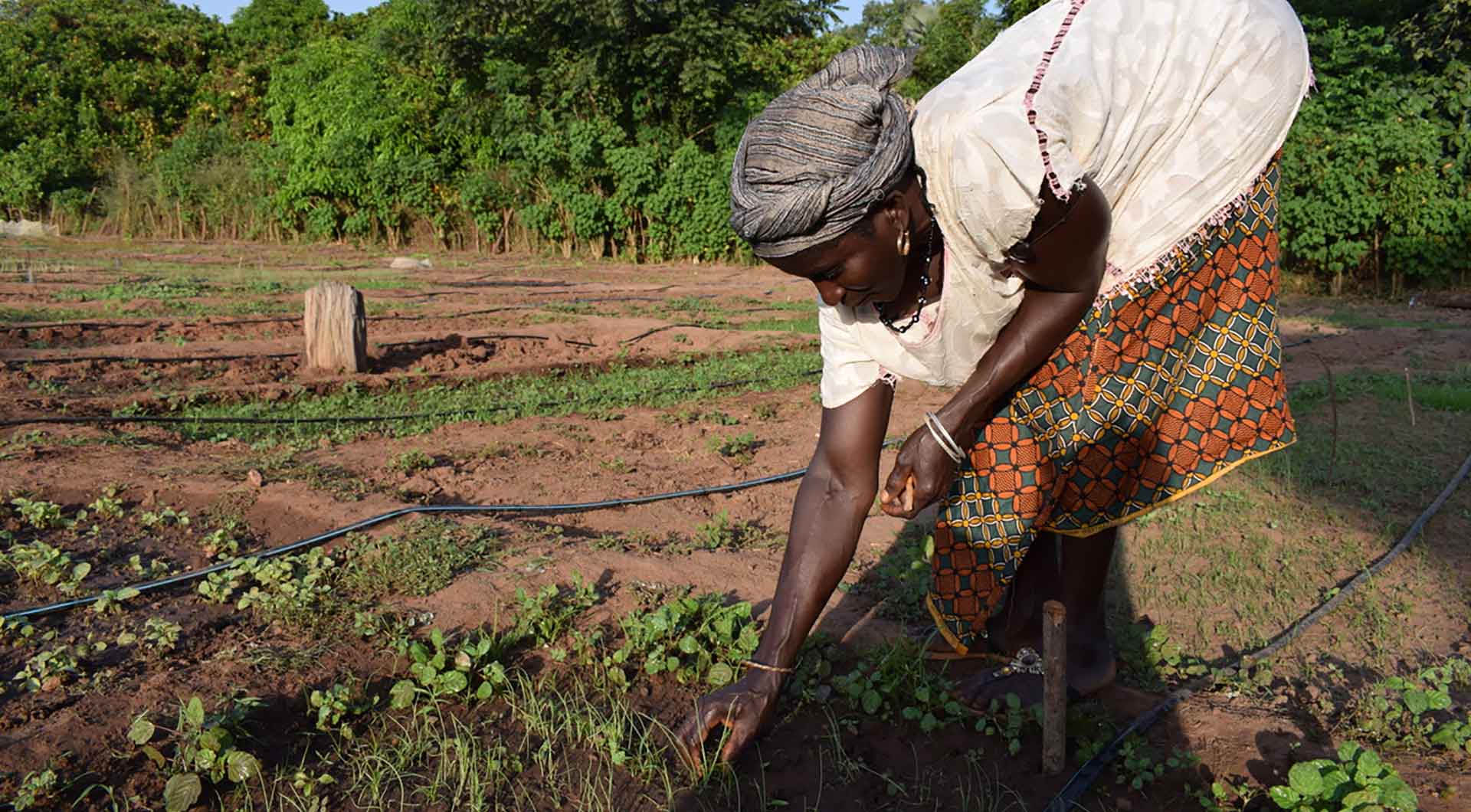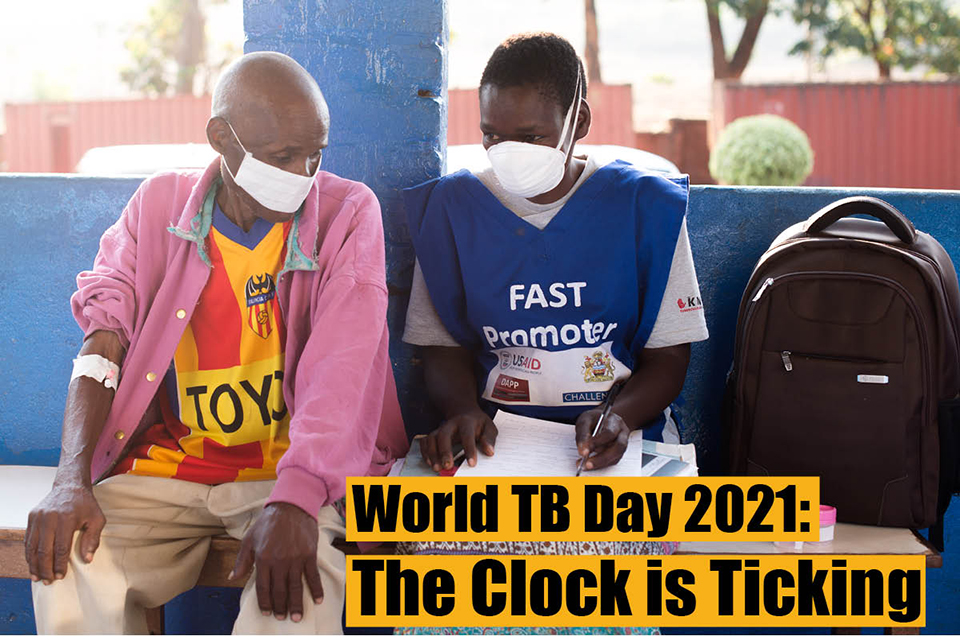
Tuberculosis is one of the major causes of morbidity and mortality in Angola, but there is little knowledge about prevention, symptoms and treatment. ADPP Angola works to raise awareness, combat stigma and organize community response.
Recently, UNDP in Angola published an article demonstrating the impact of a community health project being implemented by ADPP Angola which is supporting people to access essential TB screening, diagnosis, referral for treatment and quality care and support.

Below is the full publication of the article which can also be viewed on UNDP website here: https://www.undp.org/stories/how-community-based-care-drives-angolas-progress-against-tb
When Cristina João Pedro visited a clinic in Gabela, Angola, tuberculosis was far from her mind. She felt weak and was having trouble conceiving a second child, which prompted her visit. The nurse saw Cristina’s condition and conducted a TB test. Cristina had TB. She took prescribed medicines but stopped when she ran out and her cough subsided. When she settled in Waku Kungo, a nearby town, her condition worsened. Cristina consulted an herbal healer, who also suggested she had TB. With her health declining, Cristina went to the hospital in Gabela. "I went for an X-ray and when they told me I was very sick, I came home and started to cry. It was then that I realized that it is a very serious disease,” said Cristina.
TB is the world’s second deadliest infectious disease. Yet TB services remain out of reach for many people. Limited health education, inadequate health services and healthcare costs leave many patients undiagnosed and without treatment. Treatment takes months, increasing the risk of death, spreading TB or drug resistance if not completed.
Angola ranks among countries with the most TB cases per year. TB remains the third leading cause of death among people aged 15-49. Health service coverage is low, especially among lower income people in rural areas, with 60% of TB services located in Luanda, the capital. In 2020, GeneXpert machines used to detect TB were diverted for COVID-19 testing, which further limited TB case reporting.
But Angola is seeing progress. In 2022, the UNDP-supported Global Fund TB programme reached 95% of its target for case reporting, a key indication that patients are being found. Among those cases, 80% were cured of TB.
Progress meant supporting patients like Cristina, who had limited awareness of TB and felt stigmatized for her diagnosis. ADPP Angola and the UNDP supports community-based TB services in Kwanza Sul, where Cristina lives, and Benguela, a neighbouring province.
ADPP works closely with underserved communities to support community health workers, who educate people about TB. The health workers challenge stigma and misconceptions associated with the disease, which can delay diagnosis and disrupt treatment adherence. They also provide patient screening, contact tracing and referrals. They live in the community and are a vital link between patients and health facilities. After diagnosis, they conduct home visits and advise caregivers and patients on effective treatment and prevention.
Back at the hospital in Gabela, Cristina received another prescription for TB medicines, which were not yet available for free. She found sustained treatment unaffordable, even with her husband’s financial support. Looking for free medicines, she returned to the hospital, where she met Josefa Pinheiro Segunda Jaime, a local community health worker.
“As soon as the medication was finished, I went back to the hospital and that's when I met Josefa, who looked at my prescription. She told me that at the hospital they now give the medicines for free and with her help it was no longer necessary for me to buy the medication,” Cristina recalled.
Cristina was cured of TB last year. With personalized support from Josefa, Cristina committed to daily treatment.
“We set a day for me to visit her home and I told her that I would accompany her treatment until the end. I supported her by taking medicines to her house and making constant visits,” said Josefa regarding Cristina’s case. “I didn't have any difficulty in helping her fight the disease, because there was no lack of medication, she is responsible and her husband helped with everything,” she added.
Josefa strengthens Angola’s fight against TB by providing health education and personalized patient care. Her work is coordinated with Celestina de Carvalho Fortuna, who manages eight other community health workers in the Amboím area. Celestina provides training and operational support and serves as the liaison between local hospitals and the community health workers.
“The best way to deal with TB here in our municipality is to do IEC. Which is information, education and communication. Because if we communicate properly, we are not only preventing the individual case, but we are educating the whole community,” said Celestina.
Celestina and Josefa are essential for reaching vulnerable people who might not have easily accessible TB services. Their support helps destigmatize TB and ensures coordination with community leaders and nearby health facilities to encourage TB testing and patient support after diagnosis.
For Cristina, this personalized care proved essential after multiple attempts to complete TB treatment on her own. She credits Josefa for educating her about TB. Cristina now educates others about TB in her community.
“With Josefa’s and my husband's help I felt safer. Having two people close to me was very good. If I didn't have that support, I don't know what would become of me. Now I also help others, give them advice, explain how things are and what this disease is like. People react well when I share that information about TB,” Cristina remarked.
The Government of Angola, UNDP and the Global Fund are working to defeat HIV, TB and malaria and achieve a more equitable, healthier and sustainable future. Together, the three partners are building a stronger and more resilient health system that can withstand health challenges and provide life-saving health services in the future.
In strengthening community-based health services, this TB programme leaves lasting contributions to Angola’s efforts to promote good health and wellbeing, economic transformation and climate action to achieve the Sustainable Development Goals.


